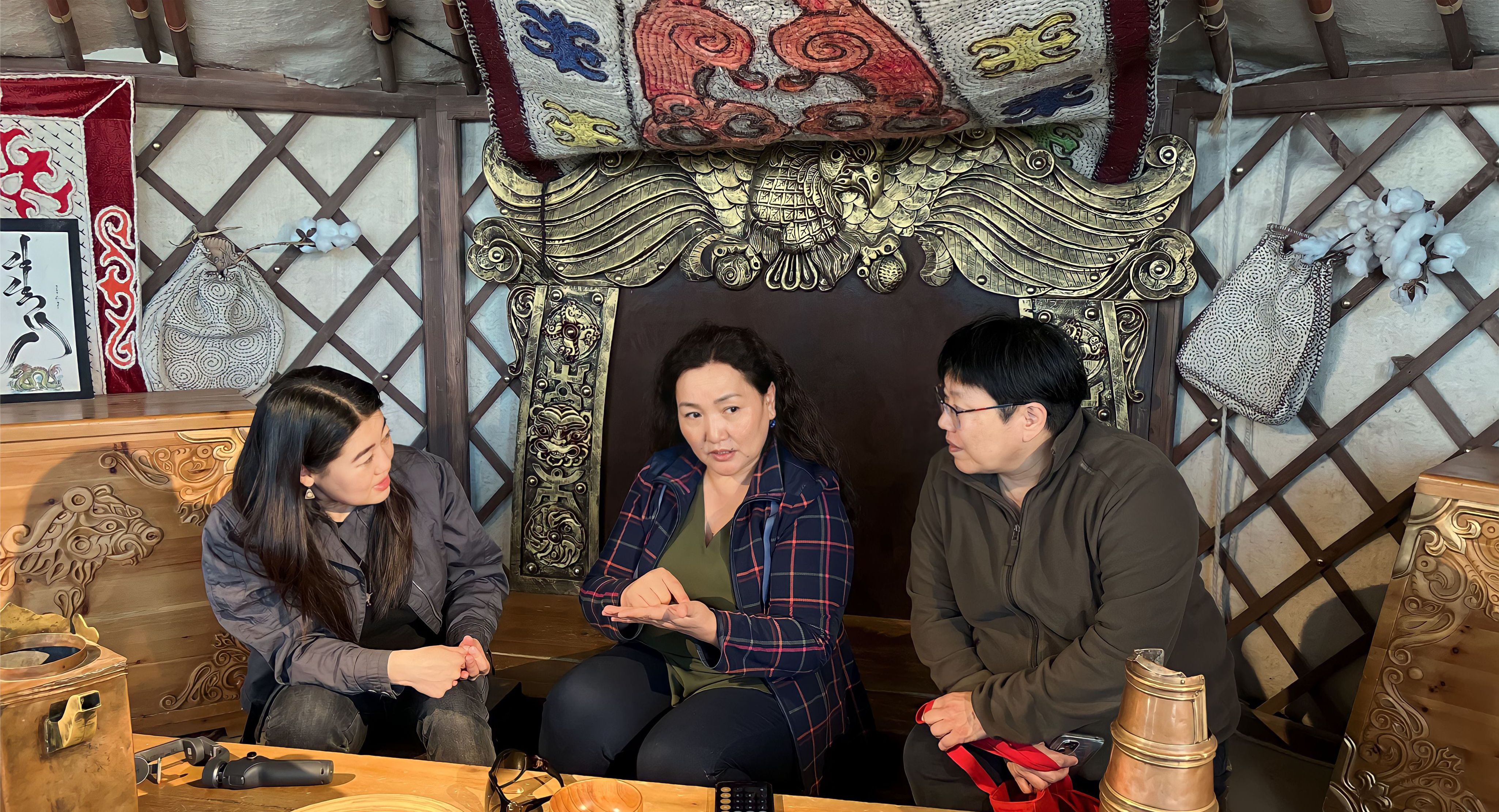In April-May 2023, after piloting the research instrument, a team of researchers in Mongolia, led by Country Coordinator Tungalagtuүa Khuukhenduu and Lead Researcher Battsetseg Semjaan (Mongolian National University of Education), conducted a survey among 8th-10th grade students and teachers at Mongolian schools. Participants for the survey were selected based on a cluster two-stage sample proportionally distributed across the five regions of Mongolia. In total, 45 schools were selected. Twenty students and five teachers were then randomly selected from each school. The sample size for Mongolia was 900 students and 225 teachers. The data obtained will be representative of national-level analysis. Respondents were interviewed face-to-face, using a tablet or smartphone, followed by online data entry into a single database using the Atlas app. Quality control of the data collection was carried out regularly online.
During the field research, members of the project team from Kyrgyzstan Chinara Omurkulova, MEL project Consultant, and Aigerim Jolchubekova, Сommunication Specialist at Taalim-Forum, as well as Tungalagtuya Khuukhenduu (Director of Nomadic Nature Conservation, Mongolia) visited schools in three remote provinces of Mongolia - Baganuur, Khenti and Sukhe Bator. They monitored data collection and observed the process of organizing and conducting interviews. Extensive meetings and interviews were held with field researchers, school administrators, teachers, psychologists and students. The Mongolian research team works closely with researchers from Kyrgyzstan. Surveys were conducted according to schedule and ethical norms.

One of the challenges of conducting research in Mongolia was the long distances between settlements and their dispersion over the country, which spans 1,564,116 km². This has had an impact on the organization and timing of the survey. In June, Mongolian researchers will begin analyzing the data.
The study is part of the Distance Education for Quality and Access to School Education project in Kyrgyzstan, Mongolia and Tajikistan.
